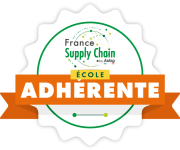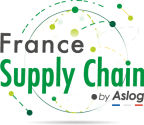
Logistics engineer
I²L Engineering School - Institute for Logistics Innovation - Metz (57)

I2L offers a 5-year, CTI-accredited course to become an engineer in intelligent logistics. AI, digitization, flow optimization and in-company internships structure a forward-looking training program.
Admission
Eligibility criteria
- Recruitment is in the first year, post-baccalaureate (general baccalaureate, technological baccalaureate STI2D, STL, STAV), from at least one predominantly scientific specialization (predominantly scientific doublettes are preferred),
- A limited number of students can join a technical or numerical BTS in 2nd year, after a year of scientific L1 with honors, or a successful Maths Sup.
- In 3rd year, a limited number of students will be recruited from the CPGE, or graduates of a BUT, a Licence scientifique or a similar foreign Bachelor's degree.
- Entry into 4th year will be possible for foreign students holding a Bachelor's degree (honors) as well as for French students having completed an M1, in both cases in line with the school's logistics orientation.
Admission process
- Post-Bac: File-based selection via Parcoursup
- Accepted subjects: Terminale générale (science major) or STI2D
- Outside Parcoursup: Selection based on application and motivation interview
- Subsidiaries accepted :
- Terminale générale à dominante scientifique 3rd year: Selection based on application and motivation interview
- Students with a scientific or technical Bac+2 or DUT/BTS in logistics. Assessment of academic skills and professional project
- Subsidiaries accepted :
Training costs
- 6900€
Where students come from
- France and International
Teaching
Domains
- Supply Chain
- Logistics
- Transport
- Purchasing
- Digital
Main themes
- Block 1 : Supervise the design and deployment of optimal logistics solutions.
- Block 2: Develop a strategy and analysis and modeling tools for logistics
- Block 3 : Set up a technological, economic, regulatory and legal monitoring system
- Block 4 : Manage projects for the development, operation and maintenance of logistics equipment
- Block 5: Supervising with know-how, interpersonal skills, ethics and deontology
Organization
Initial curriculum
- 1st year: July - August Work placement - 6 weeks
- 2nd year: July - August Operator internship abroad - 6 weeks
- 3rd year: July - August Technical internship - 8 weeks
- 4th year: September - January Operational internship - 18 weeks
- 5th year: 20-week PFE internship France / Abroad

- Type of organization : Engineering school
- Level of diploma obtained: Bac +5
- Language: 100% French
- Certifications : APICS CLTD (Certified in Logistics, Transportation and Distribution)
- Accreditations/labels: CTI (Commission des Titres d'Ingénieurs)
Standardized European credit system facilitating the comparison and equivalence of diplomas within the European Union.
Set up in 2001, the CEFDG assesses the quality of business school courses, guaranteeing quality control of Master's degrees, under the supervision of the Ministries of the Economy and Higher Education.
Awarded to certain Bac +5 diplomas, issued by the French government on the recommendation of the CEFDG, it facilitates European mobility without being confused with the national Master's degree, reserved for French universities.
A Bac +6 diploma, accessible after a Bac +5 or an M1 with 3 years' experience, aimed at acquiring expertise or dual skills, with a compulsory internship and strong professional involvement.
Source: Conférence des Grandes Écoles.
A Bac +5 diploma, accessible after Bac +4, focused on an international career. It includes 50% foreign-language teaching, 450 hours of classroom time and a minimum 4-month internship.
Source: Conférence des Grandes Écoles.
1-year professional training program for experienced executives with 6 years' experience (10 years for the Executive MBA), often part-time and continuing education, unregulated but accredited by the AMBA for the best programs.
It concerns the school as a whole (operations, pedagogy, premises, teachers), but does not certify diplomas, a role reserved for the Visa.
Lists all state-recognized diplomas, titles and certificates with official professional value. It guarantees that the certifications listed meet the needs of the job market.
Enables anyone in employment to obtain a professional qualification (diploma, title or certificate) by valorizing their experience, whether professional or extra-professional. The certification must be registered with the RNCP.
Source : France travail
Awarding of a diploma by a state-recognized private establishment after 5 years of existence, following an inspection verifying the quality of the training, admission and award of the diploma.
This American label, created in 1916, is an accreditation that rewards business schools for the quality of their management training.
Source : Dimension Commerce
A British label guaranteeing the quality of leading-edge executive programs offered by business schools. By 2022, there will be 20 AMBA-certified schools in France.
Association (under the French law of 1901) of leading engineering, management and multiple or specific higher education schools, all recognized by the French State, awarding a diploma of at least 5 years' study after the baccalauréat and conferring the grade of Master, as well as, for some of them, a national diploma.
Source: Ministry of Higher Education and Research.
Association of engineering, management and higher education schools, awarding state-recognized Master's-level degrees after at least 5 years of post-baccalaureate study.
Source: Ministry of Higher Education and Research.
National accreditation standards for training organizations wishing to prepare and present candidates for professional certifications in the metallurgy branch.
Since 1934, this independent organization has been mandated by French law to evaluate all engineering training programs, develop the quality of training and promote the title and profession of engineer in France and abroad.
Source : CTI
Qualification leading to the signature of a multi-year contract between the State and the recognized institution, setting strategic objectives to meet national priorities in higher education and research.
Source: Ministry of Higher Education and Research.
New label from EFMD (EFMD Programme Accreditation System) launched in August 2019, which allows an EQUIS-accredited institution to focus on one of its programs that it deems particularly strategic.
Source : Studyrama
Created in 1997, this European label is awarded by EFMD to business and management schools for a period of 3 or 5 years.
Independent public authority assessing higher education and research structures, and supporting quality improvement in France through analysis, evaluation and recommendations.
Source : HCÉRES.
CFA organizations recognized by leading engineering schools to train engineers through work-study programs.
A competitive cluster for transport, mobility and logistics based in the Hauts-de-France region.
This recent label enables CGE members to gain recognition for their expertise in digital technology, particularly in the field of teaching and distance learning, both in France and abroad.
Source : CGE
This service certification awarded by SGS is recognition by an independent third-party organization of the company's commitment to offering its customers quality services, meeting the characteristics defined in a set of standards.
Source : SGS
Mark certifying the quality of the process of training, skills assessment, VAE and apprenticeship training providers, guaranteeing their compliance with quality requirements.
Source: Ministère du Travail, du plein emploi et de l'insertion.
A 4-module course leading to certification in industrial flow and operations management, sharing internationally recognized methods and tools for mastering logistics processes.
A 132-question reference framework and audit methodology for assessing and improving supply chain performance, accessible via auditor certification and a junior version for students.
This unique standard for assessing and certifying Supply Chain skills enables all managerial professionals to validate their skills and identify potential areas for development.

